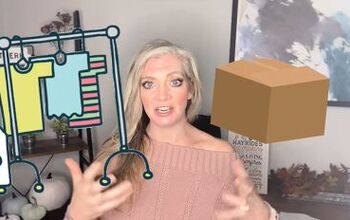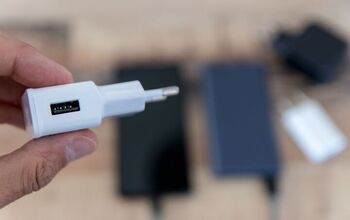How to Prepare for a Recession: 5 Things You Need to Do

I am not here to scare anyone by talking about how to prepare for a recession. I am going to talk you through exactly what a recession is and how to prepare for it because it’s just something we have to deal with in life. A recession can be a great time to learn how to get your finances in order.
What is a recession?
A recession is defined as two consecutive quarters of negative gross domestic product or GDP. In October 2022, the U.S. unveiled that we are technically in a recession. The U.S. economy did shrink for two consecutive quarters.
If you pay attention to what is going on in your life, such as higher prices at the grocery store and gas station, or you’re having a harder time getting a raise or finding a job–that is a good indicator of a recession.
How long does a recession last?
The average recession lasts about 17 months on average but there is no way to predict the length. It could be a few months or a couple of years or longer. Recessions are completely normal. It’s just a part of American and world economic history. The economy will recover.
To get you through a recession, here are my top five tips.
1. Bulk up your emergency fund
Over the next few months, I suggest that you throw as much as you can into your emergency fund. I’d suggest building up at least three months' worth of basic expenses in your emergency fund.
Once you get to your goal, I suggest continuing to add to it for the time being. The reason is that during a recession, there are often job layoffs and you don’t want to risk falling behind on any bills or losing your housing situation.
An emergency fund can help you with price increases at the grocery store, gas pump, and with your housing. Save your money in a high-yield savings account because rates are going up. It’s a much better place to store your money rather than just in a non-interest-bearing regular bank account or as cash.
I use Marcus by Goldman Sachs, which is a high-yield savings account.
2. Prioritize paying down high-interest debt
Your high-interest debt will probably be your credit cards, personal loans, and car loans. I suggest prioritizing your emergency fund before this, however. But you can begin to focus on this step after you reach your three months’ worth of emergency savings.
We are seeing interest rates rise in our high-yield savings account and such but also on debts including credit card debt, mortgages, and personal loans.
If the interest rates are increasing on any of your debts, that means of course you are paying more for that, and the longer you have it the more you are going to pay. The quicker you pay it down the less you are going to pay, which helps you to save more money.
It’s also worth looking into a balance transfer or a personal loan with a lower interest rate.
3. Continue investing
Do not touch any of your investments such as retirement or brokerage accounts. Unless you absolutely need your money from your investments, like it is a life or death situation, I do not recommend that you sell anything. If you’re going to touch your accounts, put more money into them.
You may have heard that recessions are where millionaires are made. You may not become a millionaire from this recession alone, but it will certainly get you closer. Stocks are on sale, which means this is the best time to buy since you can buy stocks, mutual funds, index funds, or whatever you prefer at a lower rate.
In the long run, these are going to grow and you’ll earn dividends and capital gains on them. All of these things will build your wealth from investing during these times.
With that being said, there is no need to time the market. You don’t need to try and wait for the lowest point of the stock market. You can continue dollar cost averaging or continue to invest every week, every other week, or every month–whatever schedule you prefer, and this will definitely get you closer to millionaire status.
It may be tough to look at your investment accounts and put money in just to see your balance drop. I suggest avoiding that if you’re someone who is mentally affected by it but just know that it is completely normal and it will grow soon.
4. Maintain and improve your skillset
This is important for anyone working in an industry that is more prone to layoffs, but really it could affect anybody and you want to make sure you are at least maintaining your skill set.
You should have your skills and resume good to go so you can start applying for new jobs if you lose the one you have now. If you want to buy something to prepare for a recession, think about a course to upgrade your skills.
5. Increase your income
Think about creating multiple sources of income. Growing more sources of income helps if you lose one source, at least you have some sort of cash coming in. Think of the table analogy.
If you have a table with one leg and that leg falls off, the table falls over. If you have four legs and one gets chopped off, the other three legs help keep you balanced a little bit to hold up the table.
How to prepare for a recession
Those are my main tips for preparing for a recession. If you have lived through a recession as an adult and have additional tips, insights, or experiences, both positive and negative, please share with us what to expect. Please also let me know if you think any of my tips can help you prepare for a recession.





















Comments
Join the conversation
Wish I had read this article a year ago. My company (retail) cut employee hours last year, said they would increase, but they haven't. I have already started looking at other sources of income. Thank you for your tips.